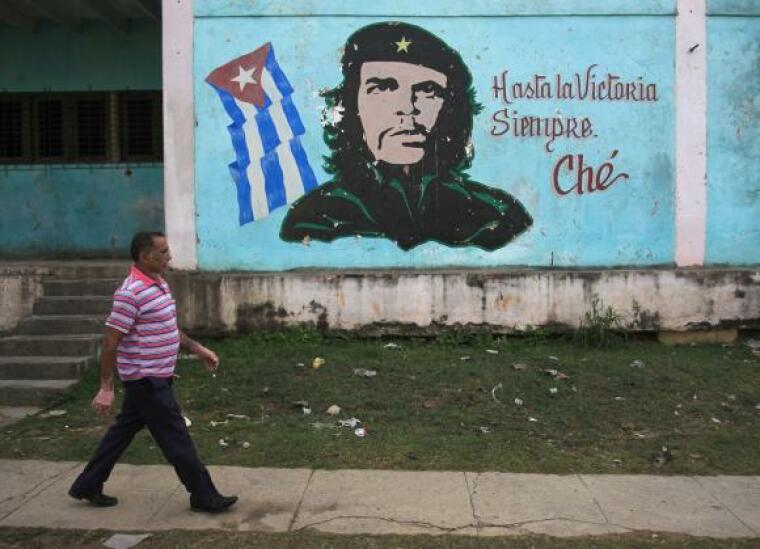U.S. Eases Cuba Sanctions To Benefit Travel and Commerce

The U.S. Treasury and Commerce departments have announced changes in the decades-long embargo against Cuba that will ease travel and commerce between the two countries.
Cuba, the only country left under the U.S. Trading with the Enemy Act of 1917, was slapped with a trade embargo by the U.S. in 1961.
Last December, President Obama announced that the U.S. would re-establish diplomatic relations with Cuba, including establishing an embassy in Havana and easing travel and trade between the two countries.
Specifically, the U.S. revised its Cuban Assets Control Regulations and Export Administration Regulations. The new rules took effect on Jan. 16.
"After all, these 50 years have shown that isolation has not worked. It's time for a new approach," the President said in his speech.
Under the new rules, except for tourism purposes, Americans can now travel to Cuba without the need for specific license. These are for "family visits; official business of the U.S. government, foreign governments, and certain intergovernmental organizations; journalistic activity; professional research and professional meetings; educational activities; religious activities; public performances, clinics, workshops, athletic and other competitions, and exhibitions; support for the Cuban people; humanitarian projects; activities of private foundations or research or educational institutes; exportation, importation, or transmission of information or information materials; and certain authorized export transactions."
Travelers will enjoy no limits in authorized expenses and they can now use U.S. credit and debit cards in Cuba.
Airlines and travel agents can now provide services without the need for license from the Office of Foreign Assets Control.
U.S. insurance companies can now provide coverage on health, life and travel insurance policies to people in addition to Americans who travel to Cuba.
American travelers will also be allowed to import up to $400 worth of goods from Cuba for personal use including up to $100 worth of alcohol and tobacco products.
The rules also allow the commercial export to Cuba of consumer communications devices, software, applications, hardware and services including internet-based communications.
Personal computers, mobile phones, TVs, memory devices, recording devices and consumer software will be allowed to be sold and donated to Cuba.
Remittances to Cuban nationals will be increased from $500 to $2,000 per quarter. Authorized travelers can now carry up to $10,000 in family remittances and remittances to religious organizations and students in Cuba.
U.S.-owned and controlled entities including banks outside the U.S. can now provide goods and services to a Cuban national outside of Cuba except when it involves commercial exportation of goods and services to or from Cuba.
While the U.S. and Cuba have re-established relations, Obama said Cuba's human rights policy will not change immediately.
"But I'm under no illusion about the continued barriers to freedom that remain for ordinary Cubans. The United States believes that no Cubans should face harassment or arrest or beatings simply because they're exercising a universal right to have their voices heard, and we will continue to support civil society there," he said.
He added, "I do not expect the changes I am announcing today to bring about a transformation of Cuban society overnight."
Obama added that continuing the embargo against Cuba is no longer beneficial. "I do not believe we can keep doing the same thing for over five decades and expect a different result. Moreover, it does not serve America's interests, or the Cuban people, to try to push Cuba toward collapse," he said.
 Christians don't have to affirm transgenderism, but they can’t express that view at work: tribunal
Christians don't have to affirm transgenderism, but they can’t express that view at work: tribunal Archaeology discovery: Medieval Christian prayer beads found on Holy Island
Archaeology discovery: Medieval Christian prayer beads found on Holy Island Presbyterian Church in America votes to leave National Association of Evangelicals
Presbyterian Church in America votes to leave National Association of Evangelicals Over 50 killed in 'vile and satanic' attack at Nigerian church on Pentecost Sunday
Over 50 killed in 'vile and satanic' attack at Nigerian church on Pentecost Sunday Ukrainian Orthodox Church severs ties with Moscow over Patriarch Kirill's support for Putin's war
Ukrainian Orthodox Church severs ties with Moscow over Patriarch Kirill's support for Putin's war Islamic State kills 20 Nigerian Christians as revenge for US airstrike
Islamic State kills 20 Nigerian Christians as revenge for US airstrike Man who served 33 years in prison for murder leads inmates to Christ
Man who served 33 years in prison for murder leads inmates to Christ


 Nigerian student beaten to death, body burned over ‘blasphemous’ WhatsApp message
Nigerian student beaten to death, body burned over ‘blasphemous’ WhatsApp message 'A new low': World reacts after Hong Kong arrests 90-year-old Cardinal Joseph Zen
'A new low': World reacts after Hong Kong arrests 90-year-old Cardinal Joseph Zen Iran sentences Christian man to 10 years in prison for hosting house church worship gathering
Iran sentences Christian man to 10 years in prison for hosting house church worship gathering French Guyana: Pastor shot dead, church set on fire after meeting delegation of Evangelicals
French Guyana: Pastor shot dead, church set on fire after meeting delegation of Evangelicals ‘Talking Jesus’ report finds only 6% of UK adults identify as practicing Christians
‘Talking Jesus’ report finds only 6% of UK adults identify as practicing Christians Mission Eurasia ministry center blown up in Ukraine, hundreds of Bibles destroyed: 'God will provide'
Mission Eurasia ministry center blown up in Ukraine, hundreds of Bibles destroyed: 'God will provide' Church holds service for first time after ISIS desecrated it 8 years ago
Church holds service for first time after ISIS desecrated it 8 years ago Burger King apologizes for 'offensive campaign' using Jesus' words at the Last Supper
Burger King apologizes for 'offensive campaign' using Jesus' words at the Last Supper Uganda: Muslims abduct teacher, burn him inside mosque for praying in Christ’s name
Uganda: Muslims abduct teacher, burn him inside mosque for praying in Christ’s name